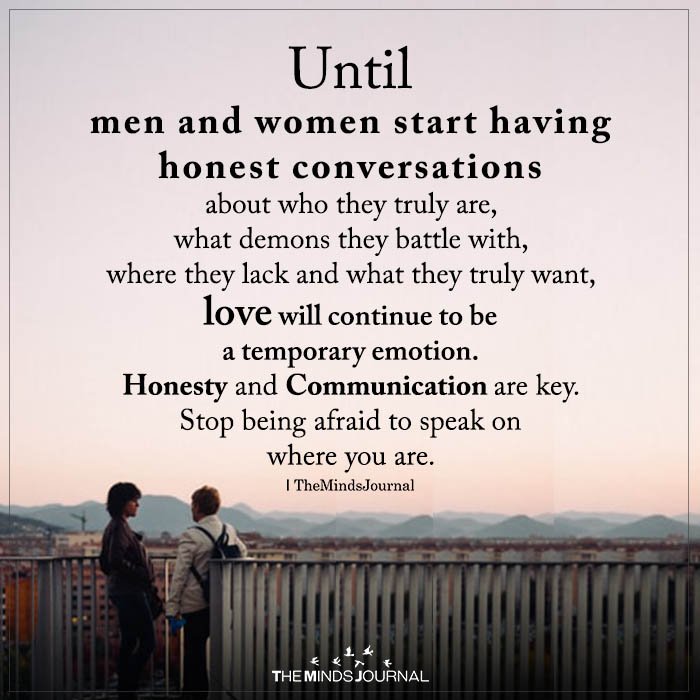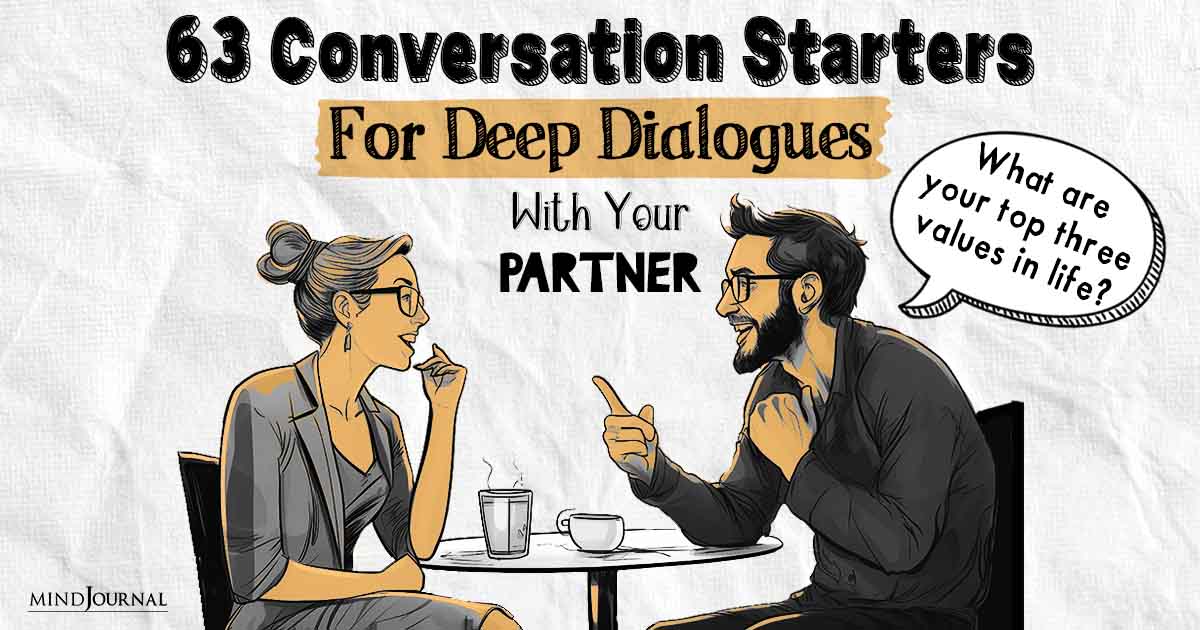One of the most frequently voiced complaints that we hear from clients and students (and admittedly, it tends to be women who we hear it from) is, “He won’t talk to me,” or, “I can’t get him to open up. No matter what I do, I don’t get anything more than a one-word response,” or, “I’m so frustrated, I could scream.”
No one likes to hear bad news, but the truth is that the consequences of refusing to listen or talk about upsetting issues can be far more painful and damaging than the experience of discussing them.
The noted marriage researcher John Gottman claims that 85% of conversations among married couples that deal with differences or difficulties are initiated by women. An unmeasured, but probably high, percentage of those conversations do not leave either party feeling satisfied. When conversations leave one or both partners feeling frustrated, disappointed, hurt, or angry, not only is there a feeling of incompletion, but a diminished willingness to re-engage at a future time. The accumulation of these “incompletions” diminishes optimism and lets feelings of hopelessness and resentment set in.
Related: 4 Ways To Get Your Man To Open Up With You
If one partner consistently refuses to participate in such conversations, either directly or by being unavailable, this pattern can hijack a relationship, creating a vicious circle spiraling down into entrenched feelings of resentment, alienation, and disappointment, or worse.
Methods of closing down the lines of communication can be overt or covert. Direct or overt refusals to engage in discussions (“I don’t want to talk about it”) often contain an implicit threat to leave, get angry, or punish the person initiating the conversation if they persist in their efforts. The situation could become either volatile or intractable, depending upon how each person responds.
Becoming less defensive and more open doesn’t necessarily translate into submitting to the other person’s will or demands. What it does require, however, is the ability to see beyond the either/or thinking such impasses can create.
While it may seem that the person who is refusing to talk is motivated by anger and resistance, it’s likely that there are other feelings underlying those. While it often appears that one person is angry and the other frightened, more often than not both partners are fearful, though usually not of the same thing. The resistant partner may be fearful that he or she will not be able to successfully hold their ground in a conversation in which they may feel less skilled than their partner at articulating their concerns and defending themselves.
The initiator, on the other hand, maybe motivated by the fear that if a purposeful conversation doesn’t occur, distance and disconnection will set in and jeopardize the foundation of the relationship, potentially destabilizing it and putting it at risk.
It’s not unusual for one person in a relationship to be more acutely aware of and sensitive to a loss of freedom and personal power, and for the other to be more concerned about the health and stability of the relationship.
Connection and personal autonomy are the essential aspects of any committed partnership, each representing what can seem like the opposite extreme.
When the relationship bond is threatened, the partner more attuned to the level of connection is more motivated to seek a correction to the system. In all likelihood, her (or his) efforts to engage the other will be met with a less than enthusiastic response, since he (or she) may perceive this partner’s concern as an attempt to exert control or undue influence.
The challenge is for the initiator to resist the temptation to throw her hands up in exasperation and give up.
Acknowledging first that “we’ve got a problem” can sometimes be sufficient to diminish a partner’s defensiveness since it is a way of expressing concern that doesn’t imply blame or judgment.
While it may seem unfair that the person who appears to have a higher degree of concern about the relationship has the responsibility to initiate dialogue and deal with a partner’s resistance, until both partners share a more equal degree of concern and responsibility, this will probably continue to be the case.
A shift toward equalizing responsibility will probably come about in time, as necessary dialogues take place that are respectful, non-accusatory, and non-adversarial in nature. What does not work is to become resigned to a stalemate and to tolerate a cold and disappointing relationship.
Such resignation is a prescription for prolonged mutual misery.
If you’ve ever been on either side of this type of impasse, you know how painful it can be and how strong the impulse is either to explode with frustration or just shut down or withdraw. You may have been the one who was unable to get your partner to talk, or maybe you’ve experienced feeling pressured to open up and talk about your feelings when the only feeling you had was “Leave me alone.” Either way, you’re not alone—and there are steps you can take to interrupt the impasse.
Related: 6 Ways To Improve Communication In A Relationship
A key step is to create a safe, non-blaming context for the conversation that enables both partners to feel trusting and safe enough to listen and respond non-defensively.
Even the most resistant partner will become more open and engaged when the threat of attack is no longer present. To make that happen, the person initiating the dialogue must be able to get herself (or himself) centered, calm, and fully present, with the intention to listen and speak without judgment or blame. This is easier said than done but is also possible—and necessary if there is to be a break in the impasse.
Here are a few guidelines: 12 Steps to Getting Someone to Open Up
1. Create an agreement to discuss the issue. If now isn’t a good time, find a moment that works for both of you and commit to it.
2. At the outset, state your intentions for what it is you each seek to have happened out of your interaction. (“I hope that we can both feel closer to and more understanding of each other,” or, “I hope that we will both begin to feel more comfortable addressing some of the difficult subjects that we’ve been avoiding,” or, “I hope to be able to listen more openly to your feelings and needs and not be so defensive when you say things that are hard for me to hear.”)
3. Be proactive by getting yourself centered, grounded, and open, with a willingness to listen deeply to your partner’s spoken words—and underlying feelings.
4. Take responsibility for your own part. Keep in mind that in all relationship breakdowns, both partners play a part. Accepting this responsibility empowers each of you to interrupt the cycle of blame.
5. Regardless of your history or previous failures, keep in mind that it is possible to interrupt even deeply embedded patterns and hold a vision of a successful outcome.
6. Speak in ways that promote trust, respect, safety, and openness.

7. Resist the temptation to explain or justify your position; instead, seek primarily to understand rather than to be understood. The time for that will come after your partner feels heard and understood.
8. Remember that feelings of greatest frustration and impatience are likely to arise just when things begin to feel most hopeful.
9. Be patient. These situations generally don’t resolve themselves in a single conversation. Breaking entrenched patterns occurs over time, not in a moment.
10. Recognize the incremental improvements during the dialogue, and show appreciation for even the smallest positive results.
Related: Loving An Emotionally Detached Man
11. Don’t concern yourself with your partner’s intentions, even if they are not completely consistent with yours. Do your best to focus on honoring your own intentions instead.
12. Thank your partner at the end of the dialogue, regardless of the outcome, and express a desire to continue the process at a later date.
Interrupting entrenched relationship impasses is rarely quick or easy, but in nearly all cases, the willingness to take the necessary steps can produce an outcome that far exceeds what either partner previously experienced or even imagined.
What are you waiting for?
We’re giving away 3 e-books absolutely free of charge. The Ten Biggest Things We’ve Learned Since We Got Married, Your Guide to Great Sex, and An End to Arguing. To receive them just click here.
Written by Linda and Charlie Bloom Originally appeared in Psychology Today










Leave a Reply